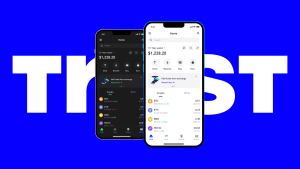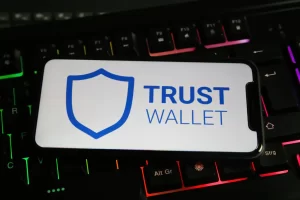Is Trust Wallet an Ethereum wallet?
Trust Wallet is not just an Ethereum wallet; it supports multiple blockchains, including Ethereum, Binance Smart Chain, and others. It allows users to store, send, and receive a wide range of cryptocurrencies.

What Trust Wallet Is and How It Works
Overview of Trust Wallet’s Key Features
-
Non-Custodial Wallet: Trust Wallet is a non-custodial wallet, meaning you control your private keys. The wallet doesn’t store your keys on a server, which ensures you have full ownership and control of your assets.
-
Multi-Asset Support: Trust Wallet supports a wide range of cryptocurrencies, including Bitcoin, Ethereum, and other ERC-20 and BEP-2 tokens. Users can store, send, and receive multiple types of digital assets on one platform.
-
User-Friendly Interface: The wallet offers a simple, intuitive interface designed for both beginners and experienced users. It makes managing crypto assets easy, with features like a built-in Web3 browser for dApp interaction.
How Trust Wallet Supports Multiple Cryptocurrencies
-
Cross-Chain Compatibility: Trust Wallet supports a variety of blockchains, including Ethereum, Binance Smart Chain, and many others. This allows users to store tokens across different networks without needing multiple wallets.
-
ERC-20 and BEP-2 Tokens: The wallet fully supports ERC-20 tokens (Ethereum-based) and BEP-2 tokens (Binance Chain-based), enabling users to manage their assets seamlessly across multiple chains.
-
Integrated Swap Functionality: Trust Wallet has integrated decentralized exchange (DEX) services, enabling users to swap tokens directly within the app. This functionality supports multiple cryptocurrencies and allows users to exchange assets without leaving the wallet.
Trust Wallet Compatibility with Ethereum
Managing Ethereum and ERC-20 Tokens in Trust Wallet
-
Full Support for Ethereum (ETH): Trust Wallet provides complete support for Ethereum, allowing users to store, send, and receive ETH directly. The wallet interacts seamlessly with Ethereum’s network, providing users with fast and secure transactions.
-
ERC-20 Token Management: Trust Wallet also supports ERC-20 tokens, which are built on the Ethereum blockchain. Users can manage a wide variety of tokens, including popular ones like USDT, DAI, and LINK, all within the same app.
-
Token Visibility: Trust Wallet automatically detects most ERC-20 tokens once you receive them, making it easy to view and manage them within the wallet. You can also manually add custom tokens if they are not automatically recognized.
How to Send and Receive Ethereum Using Trust Wallet
-
Sending Ethereum: To send Ethereum, simply open Trust Wallet, select ETH, tap “Send,” and enter the recipient’s Ethereum address. After confirming the transaction details, users can finalize the send by verifying the transaction with their PIN or biometrics.
-
Receiving Ethereum: To receive Ethereum, go to your Trust Wallet, select ETH, and tap “Receive.” You will be shown your Ethereum address, which can be copied or shared via QR code to the sender.
-
Transaction Fees: Sending Ethereum involves paying gas fees, which vary depending on network congestion. Trust Wallet automatically calculates the fee, allowing you to adjust it based on transaction urgency.
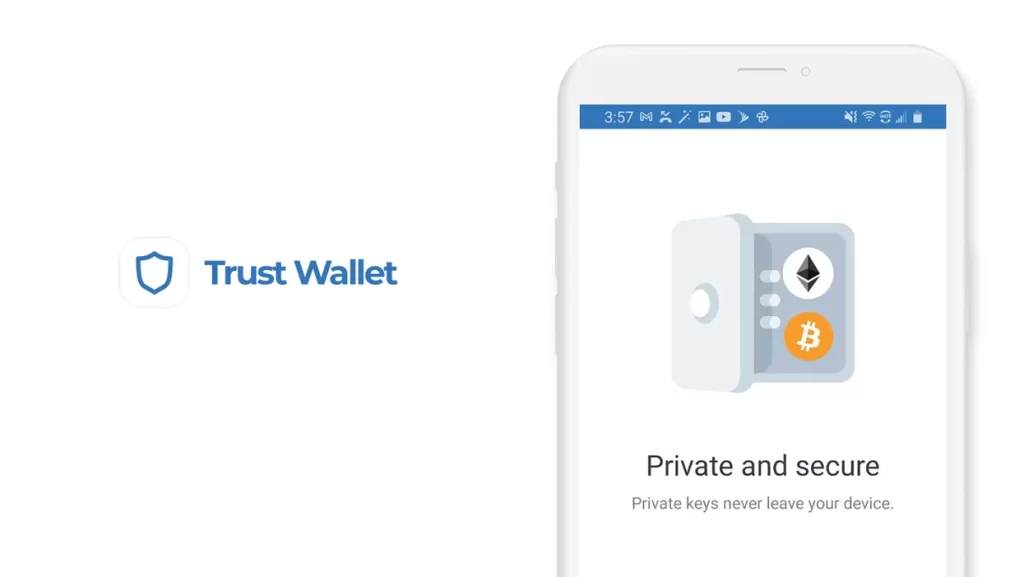
Setting Up Trust Wallet for Ethereum
Step-by-Step Guide to Creating an Ethereum Wallet
-
Download and Install Trust Wallet: Begin by downloading Trust Wallet from the official app store (Google Play or Apple App Store). Install and open the app on your device to get started with the setup process.
-
Create a New Wallet: When you open Trust Wallet for the first time, select “Create a New Wallet.” The app will then generate a 12-word recovery phrase, which you must write down and store securely. This is crucial for wallet recovery.
-
Set a PIN: After securely storing the recovery phrase, you’ll be asked to set up a PIN. This PIN is used to access your wallet on your device and provides an added layer of security.
How to Import Your Existing Ethereum Wallet into Trust Wallet
-
Choose ‘I Already Have a Wallet’: Open Trust Wallet and select the option “I already have a wallet” on the setup screen. Then, select Ethereum as the wallet type to import an existing Ethereum wallet.
-
Enter Your Recovery Phrase: Input the 12-word recovery phrase associated with your Ethereum wallet. This phrase is required to restore your wallet and access its contents, including your Ethereum and ERC-20 tokens.
-
Restore Your Wallet: After entering the correct recovery phrase, Trust Wallet will sync with the Ethereum blockchain and restore your wallet. You’ll now have full access to your Ethereum funds and transactions directly within the app.
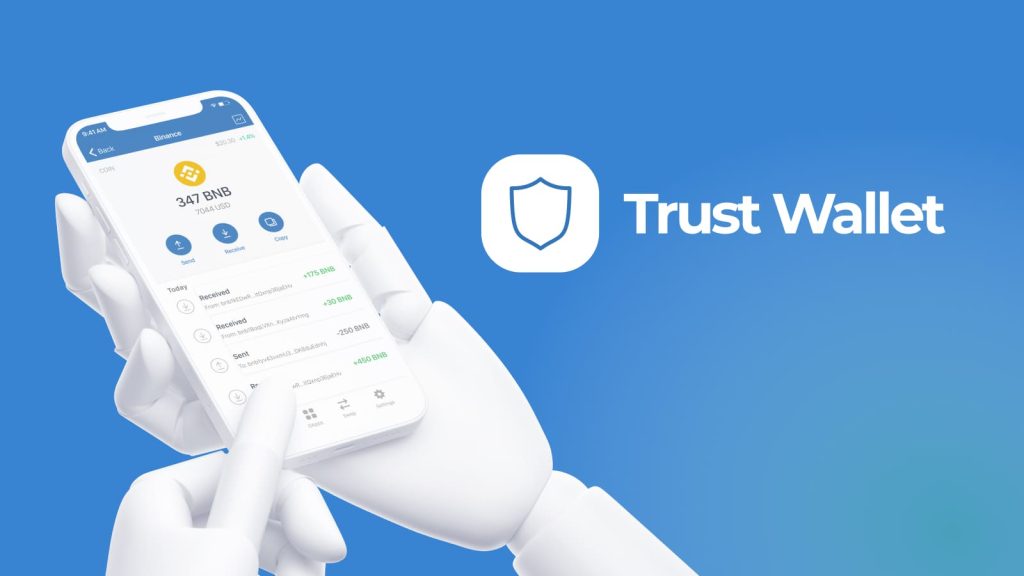
Support for Other Cryptocurrencies in Trust Wallet
Supported Blockchain Networks in Trust Wallet
-
Ethereum and ERC-20 Tokens: Trust Wallet fully supports the Ethereum blockchain, allowing users to store and manage ETH and all ERC-20 tokens. It enables seamless transactions within the Ethereum network and interaction with decentralized applications (dApps).
-
Binance Smart Chain (BSC): Trust Wallet supports Binance Smart Chain, which enables users to store and manage BEP-20 tokens. This feature allows users to interact with dApps and decentralized finance (DeFi) projects on the Binance network.
-
Other Blockchains: Trust Wallet also supports a variety of other blockchain networks, such as Bitcoin, Litecoin, and more. It enables users to store cryptocurrencies across multiple blockchains, consolidating assets in one wallet.
How Trust Wallet Manages Multi-Currency Portfolios
-
Unified Wallet Interface: Trust Wallet provides a simple, intuitive interface that allows users to manage multiple cryptocurrencies in one place. The wallet supports hundreds of different tokens, making it easy for users to track and manage their entire portfolio.
-
Auto Detection of Tokens: Trust Wallet automatically detects the tokens you receive on supported blockchains. ERC-20 and BEP-20 tokens, for example, will show up in your wallet automatically once they are transferred to your address, ensuring that you don’t need to manually add each token.
-
Custom Token Addition: If a token is not automatically detected, Trust Wallet allows users to manually add custom tokens by entering their contract address. This ensures that all assets, even niche or new tokens, can be managed without limitations.
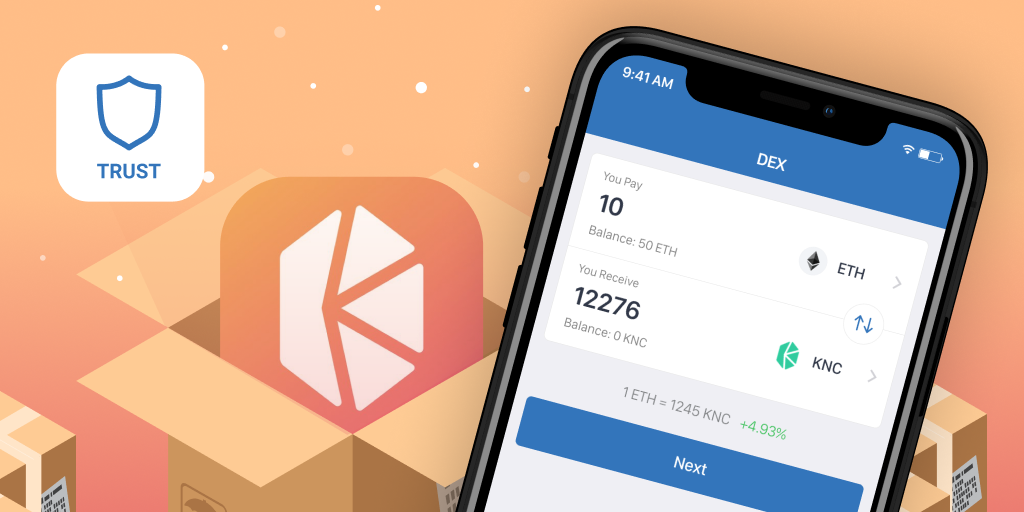
Security of Trust Wallet for Storing Ethereum
Security Features in Trust Wallet for Ethereum Users
-
Private Key Control: Trust Wallet is a non-custodial wallet, meaning that only you control your private keys. These keys are stored securely on your device, giving you full ownership and reducing the risk of third-party breaches.
-
Backup and Recovery Options: During wallet setup, Trust Wallet generates a 12-word recovery phrase that can be used to restore your wallet. This phrase should be stored securely offline to ensure you can regain access to your Ethereum and other assets if your device is lost or damaged.
-
Local Encryption: Trust Wallet uses strong local encryption to protect your private keys and sensitive data. The private keys are stored in your device’s secure storage and are never transmitted over the internet, providing an extra layer of protection.
Best Practices for Protecting Your Ethereum in Trust Wallet
-
Use Strong Passwords and PINs: Set a strong PIN for your Trust Wallet app. Additionally, ensure your device itself is secured with a strong password, biometric authentication (like fingerprint or face recognition), and two-factor authentication (2FA) for related accounts.
-
Keep Your Recovery Phrase Offline: Never store your recovery phrase digitally on your phone or computer. Write it down and keep it in a secure, offline location, such as a safe or hardware wallet, to avoid exposure to hackers or phishing attacks.
-
Beware of Phishing and Scams: Be cautious of phishing attempts that attempt to trick you into revealing your private keys or recovery phrase. Trust Wallet will never ask for your private keys, so always ensure that you are on the official app or website before interacting with any services or links.

